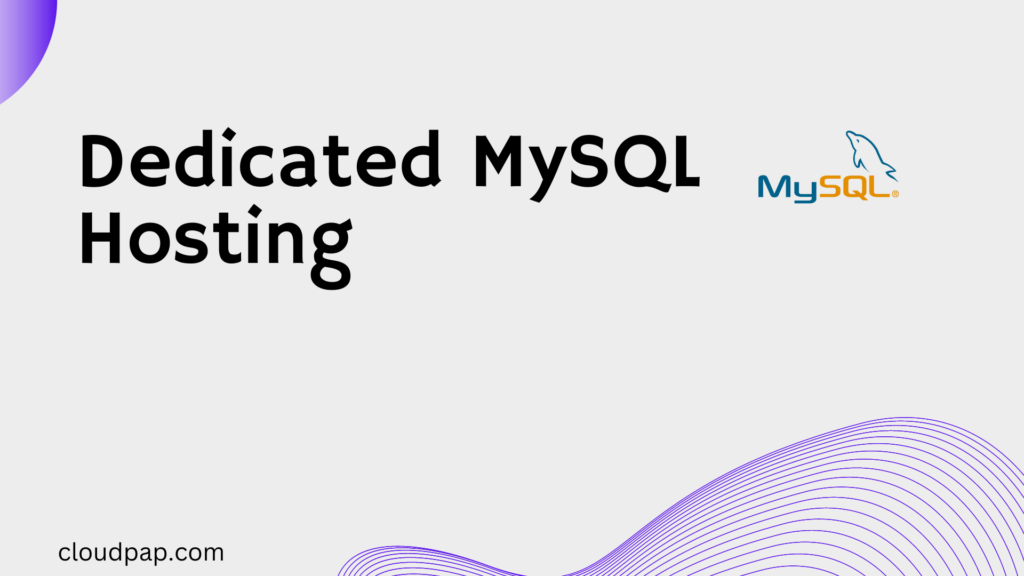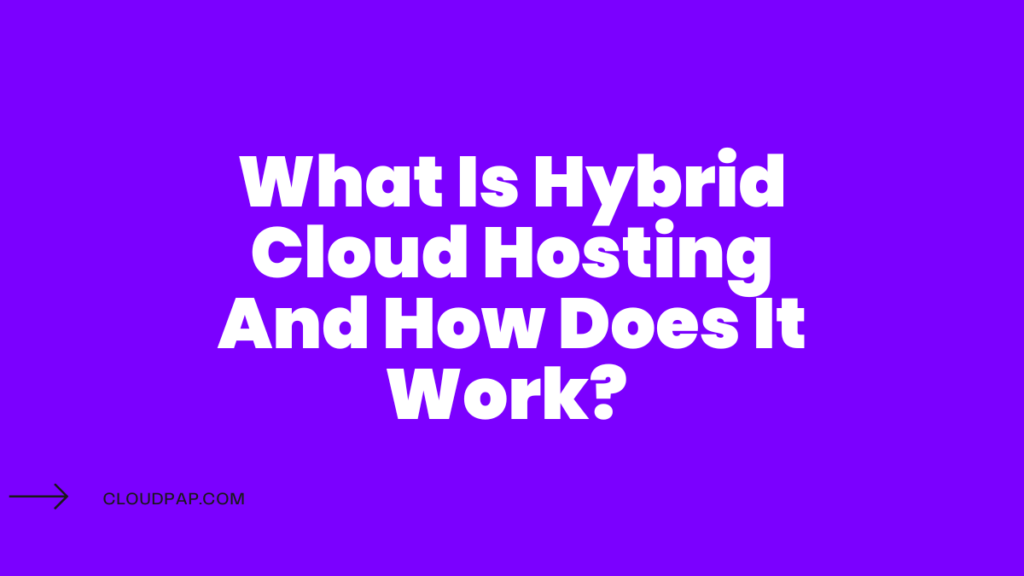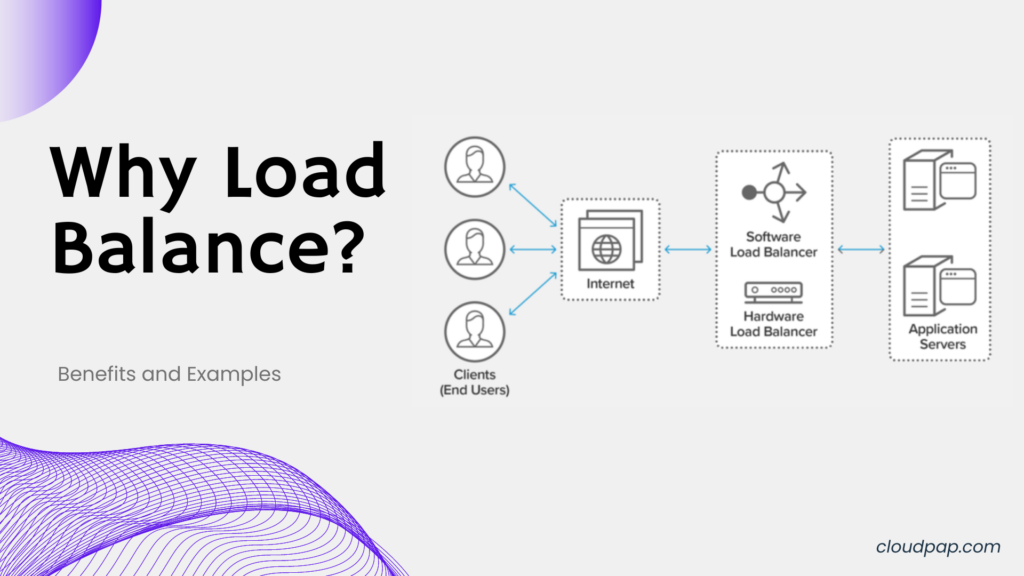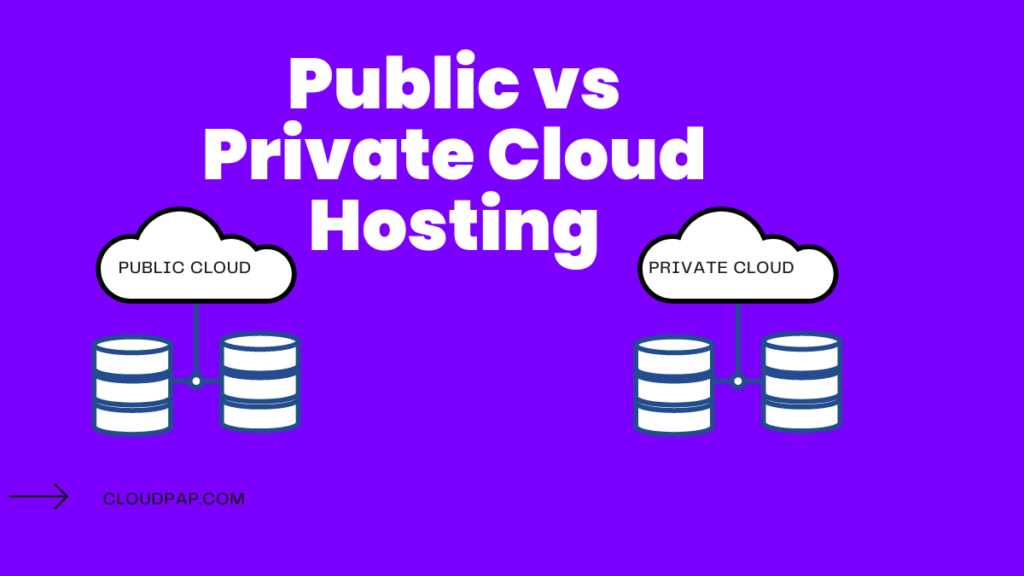Cloud hosting is a rapidly growing segment of the web hosting industry, and it’s not hard to see why.
With cloud hosting, you can easily scale resources to meet changing demands and get access to data from anywhere in the world.
But before you jump into cloud hosting, it’s essential to understand the different types available and which one will best fit your needs.
What is Cloud Hosting?
You know about shared, dedicated, and VPS hosting, right?
Well, there’s an even better option, cloud hosting!
This type of hosting stores data and files on multiple servers at once rather than a single physical server, meaning more reliability and better performance for your website or application.
Here, the responsibility for managing the hardware is shared among many providers, creating a highly resilient system with unlimited storage capacity and scalability.
Now, the main benefit of cloud hosting is that it enables you to access your data quickly and easily from anywhere in the world.
This type of hosting also offers increased flexibility as resources can be scaled up or down depending on your needs.
And because cloud resources are distributed over multiple locations, they can provide greater protection against natural disasters or other disruptions which could otherwise cause outages.
Types of Cloud Hosting
Like normal hosting, the cloud also comes in different flavours. Let’s dive into each briefly.
a. Public Cloud Hosting
Like shared hosting, public cloud hosting is where multiple organizations share a single infrastructure.
It allows organisations to scale quickly and cost-effectively using pooled resources such as hardware and software.
As you can guess, this has its perks.
- It’s more secure than traditional hosting solutions
- Reduces costs because you don’t need to purchase or maintain hardware
- Offers higher levels of reliability since there are no maintenance or downtime issues
- You can access your data from anywhere with an internet connection.
However, public cloud hosting does have some downsides.
It’s more expensive than traditional hosting solutions and limits your control over servers and data.
Not to mention, cloud-based systems are susceptible to hacker attacks, which can lead to stolen data or even the complete destruction of your site.
Another disadvantage is that you don’t have access to the hardware.
This means that if you need to troubleshoot the server or fix a bug, you won t be able to do it yourself. You’ll have to rely on the hosting company s expertise, which could lead to a long wait time.
b. Private Cloud Hosting
This is the complete opposite of the public cloud.
Private cloud offers users the benefit of a secure, virtual private environment.
This type of cloud hosting allows businesses to have their data stored on remote servers without worrying about sharing resources with other companies.
And can be used in tandem with public clouds or as an entirely separate infrastructure for storing and processing data.
The primary benefit of private cloud hosting is enhanced security compared to other types of cloud-based services.
It also provides users with greater control over accessing and managing their own data, as well as more flexibility in terms of customization options and scalability.
And offers improved performance due to fewer people using the same resources at once.
Despite these perks, there are some downsides to this type of hosting that business owners should consider before making their choice.
One of the biggest is that it requires a great deal of investment in time and money.
It also means that users have to devote more resources for maintenance and management.
c. Hybrid Cloud Hosting
Like how VPS combines both shared and dedicated perks, hybrid cloud hosting is a type of cloud hosting that combines public and private clouds.
You get more flexibility to access resources from both the public and private clouds simultaneously.
And you can effortlessly transfer workloads between the two environments depending on your particular needs at any given time.
As for security, because data is stored across multiple physical locations, it’s less vulnerable to cyberattacks than if it was stored in just one place.
This begs the question, what could be the downside of using a hybrid cloud?
Obviously, the costs?♀️!
For instance, businesses with sensitive data need to ensure that the security is good enough for their purposes.
This means that they must invest in one or more encryption software products.
Otherwise, any unencrypted data could potentially be exposed through the public internet.
Other deployment options
IaaS (Infrastructure as a Service)
Infrastructure as a Service (IaaS) is a type of cloud hosting in which computing resources are provided to customers on demand.
It is the most flexible and scalable option for businesses that need access to hardware such as servers, storage, and networking components.
With this one, you can select from a variety of virtualized infrastructure services such as compute, storage, networking, or operating systems without having to purchase or maintain physical hardware.
This helps reduce costs associated with large-scale capital investments in physical infrastructure and gives organizations the agility to scale their resources up or down when needed easily.
IaaS also offers greater control than other cloud hosting solutions since it allows users to customize their environment according to specific needs.
It also provides increased security by enabling users to isolate their applications from each other and deploy them on separate virtual networks with different levels of access control.
PaaS (Platform as a Service)
This cloud computing model allows companies to outsource their hosting and development needs.
A PaaS provider offers resources such as operating systems, databases, web servers, and application programming interfaces (APIs) that developers can use to create applications quickly and efficiently.
Having access to such resources eliminates the need for a company to purchase hardware or software or manage in-house server infrastructure.
Using PaaS also reduces costs associated with developing applications.
Remember, the provider takes care of the infrastructure maintenance, upgrades, security patches, and other support tasks.
You also get access to tools such as analytics engines and machine learning algorithms that would otherwise require significant investments in time and money.
Furthermore, because these resources are provided in the cloud environment, less overhead is involved compared to traditional hosting services models.
SaaS (Software as a Service)
Software as a Service (SaaS) is a type of cloud hosting that allows businesses to access software applications over the internet.
It eliminates the need for companies to install and run applications on their own computers, or purchase licenses for multiple users.
SaaS offers affordable services such as customer relationship management, enterprise resource planning, accounting and more without the hassle of managing complex IT infrastructure.
And since no hardware installations are required, SaaS makes it easier for businesses to scale up or down depending on their needs in real-time.
This helps in reducing cost, time and effort by allowing them to focus only on the core business functions instead of managing hardware and software systems.
For peace of mind, the provider manages all SaaS deployments centrally. This means the provider ensures that all user data is secure, with regular updates applied automatically when needed.
Choosing the Right Cloud Hosting for Your Needs
As you can see, you have a mouthful of options; which way should you go?
Here are some pointers to help narrow down the options.
a. Cost
How this factor affects your choice largely depends on your budget and how much you are willing to spend.
Some cloud hosting services offer plans at a very low cost, while others can be more expensive depending on the features they include.
Generally speaking, cheaper plans often have fewer features and limitations in terms of disk space, data transfer and other technical aspects than pricier options.
It’s best to compare different providers and find a balance between cost and features that make sense for your business needs.
A good rule of thumb is to start with a basic plan that meets your current needs but allows room for growth if necessary in the future.
b. Security
Security is another crucial factor to consider when choosing the right type of cloud hosting for your needs.
It affects what you choose in various ways, such as influencing the available data protection methods and the types of security protocols in place.
When it comes to data protection, different cloud hosting services offer different levels of encryption and secure storage options.
Depending on what type of data you are storing and how secure it needs to be, this will influence which type of hosting service you select.
For example, if sensitive financial information is being stored, then a provider with higher levels of encryption and stricter security protocols might be best.
In addition to selecting a particular host for its security features, it’s essential that companies also have their own internal policies in place as well.
c. Performance
Performance is an incredibly important factor!
For businesses that require high-performance computing solutions and applications, such as gaming or streaming services, platform-as-a-service (PaaS) or Infrastructure-as-a-Service (IaaS) solutions may be preferable due to their superior processing power.
On the other hand, if you are more interested in having a backup solution that provides quick access to data without being tied down to hardware constraints, then Software as a Service (SaaS) could be your best bet.
Final Thoughts
In conclusion, it is clear that when it comes to selecting the right cloud hosting platform, there are various options available.
Each type offers different advantages and disadvantages depending on the user’s needs.
Public clouds offer convenience and scalability, while private clouds provide greater control over resources and data.
Hybrid clouds combine the benefits of both public and private cloud solutions for organizations that require a combination of security, control, and flexibility.
Ultimately, businesses should consider their specific requirements before deciding which type of cloud hosting best suits their needs.
When making this decision, businesses should also consider their budget constraints and any technical expertise they have in-house to maintain the cloud environment.
Don’t forget how much support you need from the hosting provider in terms of data storage or server maintenance services.






